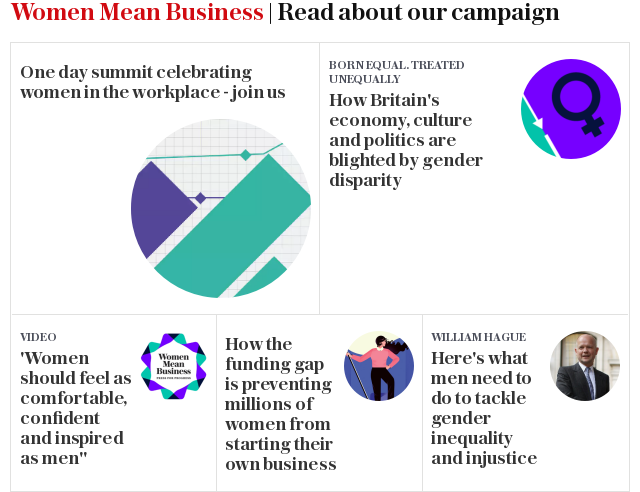'Mumpreneur' and 'lipstick entrepreneur' put young women off starting businesses, MPs warn


Terms like "mumpreneur" and "lipstick entrepreneur" are stopping young women from starting businesses, MPs say.
In a report the All Party Parliamentary Group for Entrepreneurship said that girls were being put off launching careers as science and tech entrepreneurs because of a perception that women's businesses belonged in the lifestyle sector.
"The media often portrays women as running 'lifestyle' businesses, which have little opportunity for growth. Terms like 'mumpreneur' or 'lipstick entrepreneur' do little to tackle the stereotype," its report warns.
"The media should move away from gender altogether when profiling Britain’s most successful entrepreneurs."
Stereotyping means that women are more likely to launch businesses in sectors where it is difficult to scale up quickly, such as retail, health and the arts.
Women interviewed by the APPG said it was difficult to build profitable businesses in more scalable sectors such as tech, construction and manufacturing.
The report found that 31 per cent of women saw their gender as a drawback when trying to expand their business, compared to less than one per cent of men.
MPs also recommended that benefits for self-employed men should be changed to bring them into line with statutory paternity pay.
Currently women who work for themselves receive government-funded Maternity Allowance, but there is no equivalent for men.
Introducing a paternity allowance would mean "British society re-examines the expectations placed on women to carry out certain roles", the report argues.

Childcare laws should also be changed to allow nursery and pre-school teachers to look after more children, as the UK's ratios are currently "among the most stringent in the OECD", the report added.
Other hurdles include "networking opportunities that favour men" and difficulty accessing funding.
The Telegraph's Women Mean Business Campaign was launched earlier this year to encourage the Government to close the funding gap faced by female entrepreneurs.
Annabel Denham, the co-ordinator of the APPG and author of the report, said: "Frustratingly, women are subject to unconscious biases around funding, lack the confidence and role models to pursue careers in STEM, and are erroneously perceived as having inadequate business experience and skills, and a reluctance to take risks."
Seema Malhotra MP, an officer of the APPG, said: "There is no single solution to this issue, but there is a need for an integrated strategy, incorporating tweaks to maternity pay and childcare."
Chris Hulatt, co-founder of Octopus Group, which sponsored the report, said: “Too few female-founded companies are securing the funding they need to scale.
"If Global Britain is to be a success, it is critical that women have the same opportunities to realise their ambitions and create the high growth businesses of tomorrow. "

 Yahoo News
Yahoo News 
